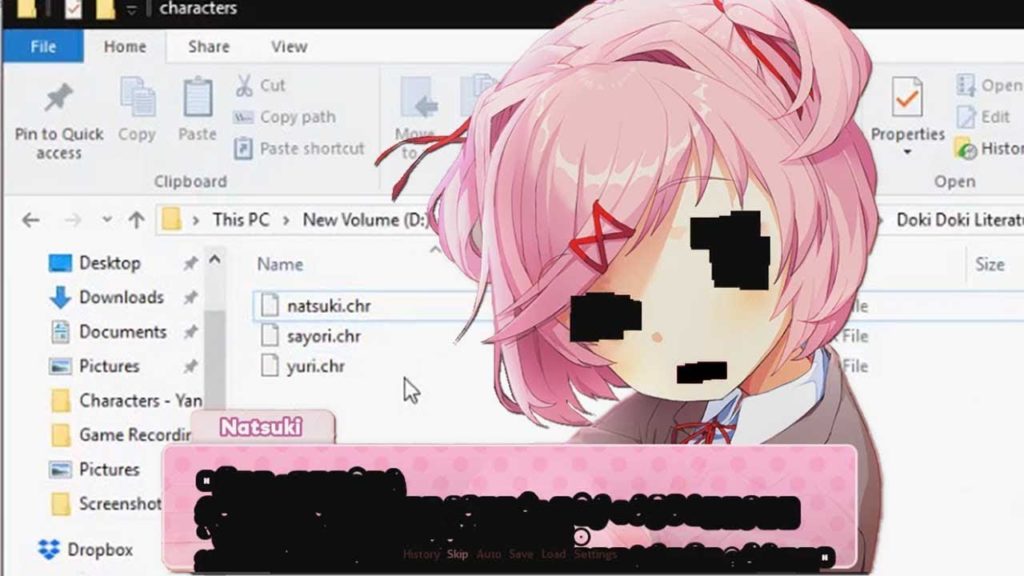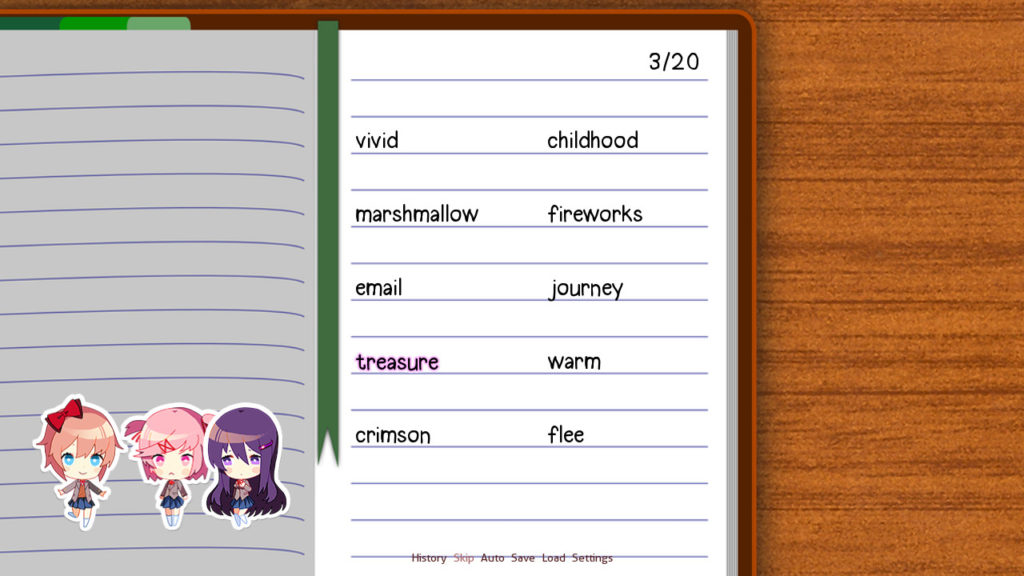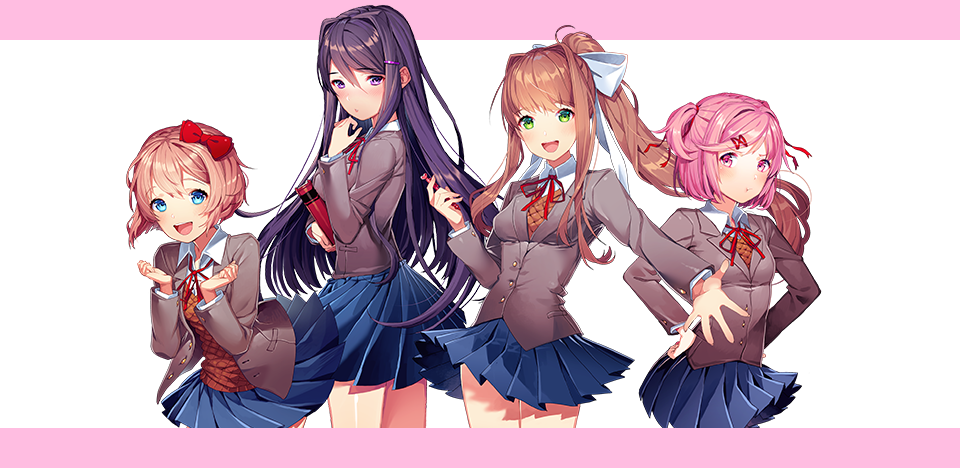One of the most interesting aspects that I felt DDLC allowed the player to participate in was the aspect of reaching within the code itself and deleting an actual file that contained a character that was written. Throughout the entire game, instances of the game “breaking down” or parts of the code being shown to be written by Monika allowed the player to be able to interact with and react to the part of the game that reveals development from the end of the game maker. The ending that I was able to reach was one that involved deleting Monica’s file and essentially angering her enough to actually experience regret and put the game back together without herself in it. Just the aspect of being able to go into the game, the coding portion, and delete a part of it in order to access a different interpretation of the game reveals how much agency the player is able to have within the game to reach various endings.

As I looked more and more into the different endings, I realized that to reach different endings players have figured out different ways to be able to delete or keep each of the character files in order to be able to reach certain people or keep certain people happy. For example, to be able to attain the ultimate happy ending, the player would have to save different files of each game, with each poem being tailored to each different girl within every version. The player also has to be careful not to delete Monika too early or else it would ruin the attaining of the happier ending as well. The player being able to choose whether or not to stray from the original ending is an important one to make, but the enticing aspect of the alternate ending is the fact that the game developer Dan Salvato included a letter from himself at the end of the game.

The interesting aspects of being able to code or change part of the game is essentially the role that the player is able to take within the game. Instead of choosing within the choices presented by the developer, the player is able to briefly be the developer of the game, and alter some of the choices that are presented to them. Although, it does sometimes feel like a false sense of freedom in choosing to alter the path as it still all lies in the main game developer’s hands, it adds to this level of meta-gaming that allows the player to really look back and consider their roles. The ability for the player to first consider their roles in a game and then apply it to the world around them is what I believe to be one of the most important aspects of meta-gaming. As I was playing DDLC, I was considering the impacts of everything that I was doing on each character, especially after their gruesome secrets were revealed. Maybe tailoring my poem towards Yuri would help save her life, maybe choosing to show my poem to Sayori would make her less depressed. Does revealing my love for the characters change their endings? Does deleting their files save them from their own misery? It made really consider the impacts I have on people around me, people I care about, and even people I don’t know.
Bibliography:
- “Possible Endings.” Doki Doki Literature Club Wiki, https://doki-doki-literature-club.fandom.com/wiki/Possible_Endings.

